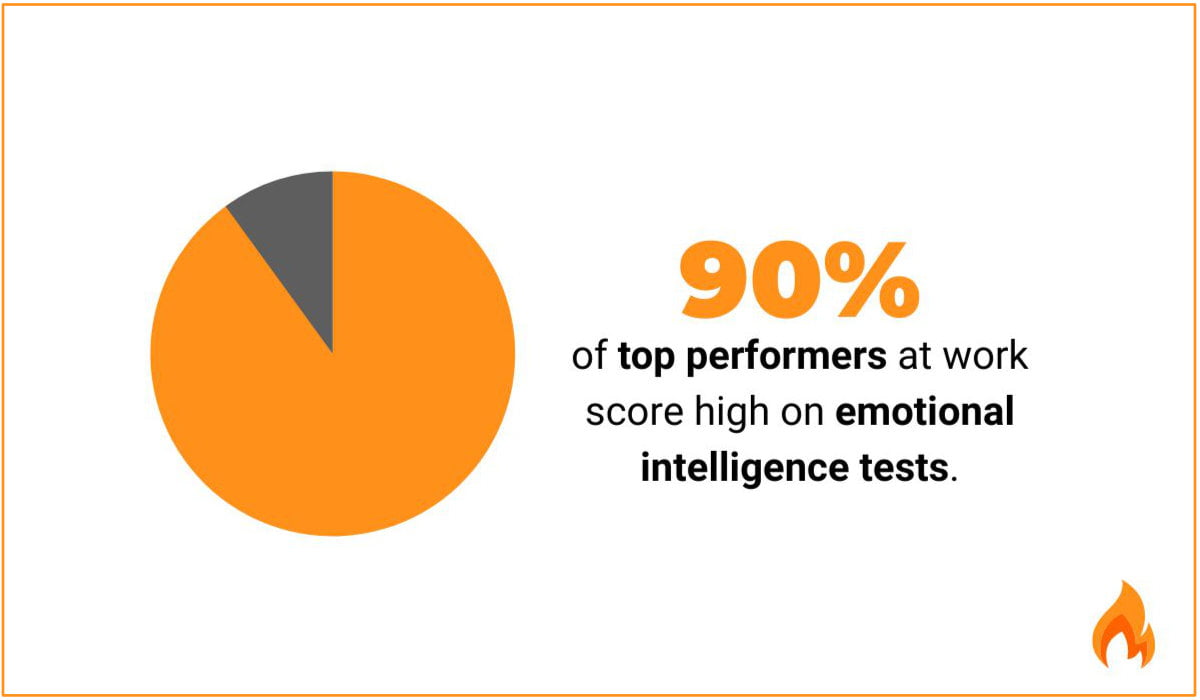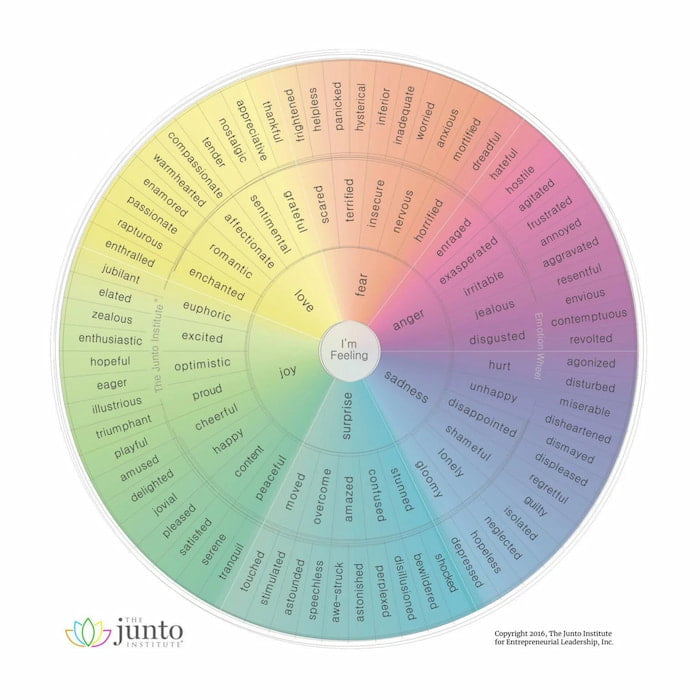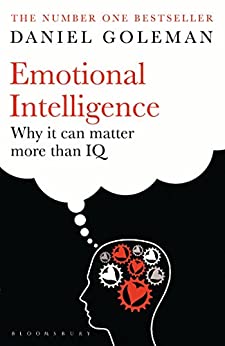Should Developers Care About Emotional Intelligence?

Why Is Emotional Intelligence Important in the Workplace?
Software Engineering is a competitive field with numerous opportunities worldwide. However, in roles where everyone is about as smart as everyone else, your ability to manage yourself and your relationships can help you stand out from the pack. In fact, it’s a proven fact that people who score high on emotional intelligence tests perform better at work.

Emotional intelligence isn’t just a single trait. Rather, it includes a combination of skills and characteristics, including:
- Self-awareness;
- Self-management;
- Motivation;
- Empathy; and
- Social skills
As you may already realize, all of these components are important for creating high-quality relationships with team members, managers, and clients. Some research even suggests that out of all skills that are critical in the workplace, emotional intelligence is the best predictor for success. In other words, the more emotionally intelligent you are, the higher your chances to succeed in your job.
Does that surprise you? After all, empathy, self-awareness, and other skills mentioned here aren’t traditionally thought of as skills that will get you far in your career. So why does emotional intelligence correlate so strongly with success?
Two main reasons, actually.
For one, higher emotional intelligence is linked to higher job satisfaction. Research shows that those who work to successfully manage relationships, who increase their emotional stability, work on self-development, and truly care about their team, have a better chance at being more satisfied with their job. Of course, this could work both ways – being happy with your job can help you focus on these skills, which is why choosing a company that fosters good relationships and trust is so important.
The other reason is that emotional intelligence is strongly associated with job performance. This one is pretty simple: having a team that truly cares about each other and works together towards a common goal, helps you hit your performance goals and improve your career. When managers create space for open conversations and truly care about each individual’s experience, it not only helps you be happier at work, but also helps you achieve success in your work.
This means that in a world of short deadlines, economic changes, and the constant need to adapt quickly, emotional intelligence can help you avoid burnout and keep your edge.
What Does Emotional Intelligence Look Like in Everyday Life?
Making sense of our own and others’ emotions, noticing when someone’s behavior changes, and putting in effort to understand the thoughts and actions of others are things that make us human. In the context of work, all of these skills can also make us great leaders or colleagues.
So let’s visit some examples of what emotional intelligence looks like in everyday work situations.
High emotional intelligence can be noticing that something is bothering your team members, providing comfort, motivation, or even creating a distraction.
For example, approaching a colleague when they’re down and saying: “I noticed you’re not your usual self. You may not want to share or talk right now, but I want you to know I’m here if you need me,” can move mountains. Even if they don’t share, knowing there’s someone who cares can make a difference. Other more subtle signs here could be bringing their favorite snack to share over a lunch break or leaving a sticky note with an inside joke on their desk.
Active listening, which goes beyond simply hearing the words that come out of someone’s mouth, is another tell-tale sign of emotional intelligence. The true skill of listening means understanding the meaning and intent behind what the person is trying to share and being an active communication participant.
You can tell your conversation partner is emotionally intelligent if they’re fully present as you talk. They often show interest by keeping eye contact or nodding or shaking their head in response. Emotionally intelligent people foster great conversation by asking open-ended questions to encourage sharing, but also by paraphrasing and reflecting back to show you they understand and are thinking about what they’re hearing.
Here are a couple of extra tips if you want to practice this skill and become a more active listener:
Finally, emotional intelligence can look like making an effort to understand the emotions of others and regulating your own to provide an optimal solution. Sometimes the solution is as simple as providing a listening ear and making the other person feel heard and understood. Not every problem can be solved in a short period of time, but sharing the load can make the problem seem smaller.
This can help your communication partner create mental space to get a better hold on their emotions and remove the fog to be able to see the problem more clearly. And that’s what emotional intelligence is all about.
Can Companies Show Signs of Emotional Intelligence?
In world-class software development companies, emotional intelligence is woven into the fabric of company policy and work processes.
For example, remember how we said that one of the signs of emotional intelligence is understanding what others are feeling? Well, companies are actually capable of doing the same thing. When a company has enough high-quality procedures to keep work organized, but also provides enough flexibility to show it understands its team members have busy lives outside of work, that’s a sign of emotional intelligence on an organizational level.
At Newfire Global Partners, we recognize the importance of putting trust in our team members to do their work to the best of their abilities without micromanagement or time tracking. This, in turn, has created a culture where our team members communicate their needs, worries, and feelings. As mentioned above, creating mental space for how others are feeling and providing this level of understanding fosters good relationships and helps us be more effective and efficient.
Can Emotional Intelligence Be Improved?
Unlike other types of intelligence, emotional intelligence can actually be practiced and improved over time. Some scientists suggest trying to bolster your emotional IQ using the 4 R’s Method. Here’s how it works:
Realize
Understanding your own needs, drives, and emotions is what creates self-awareness, a crucial component of emotional intelligence. It’s important to be introspective and to practice identifying your emotions by listening to people’s feedback and reactions, but also by questioning yourself. Self-awareness is what will make the biggest difference in your responses. If you want to practice self-awareness, just keep asking yourself important questions. For example, ask yourself what skills do you have, what do you lack, and what you can work on.
Recognize
Checking in with yourself forces you to pay attention to your emotions more often and help you respond better when strong feelings or intense situations occur. Things we don’t know the name of or that we don’t understand, scare us. That’s in our human nature. Being specific and labeling your experiences and emotions can help you deal with whatever comes your way. A good place to start is to create 5 random alarms throughout the day and ask yourself, “What am I feeling at this moment?”
Refine
The more vocabulary you have for emotional experiences, the better you get at identifying, experiencing, and controlling your reactions. Have a look at the wheel below to see just how colorful and varied human emotions can be. Have you felt every one of these emotions at some point?

Knowing how to distinguish similar emotions helps you find ways to cope successfully because you know what you’re really up against. It also helps you prolong positive experiences because it amplifies the good things you feel.
Reframe
Biologically, emotions only last for a few seconds. What makes it feel like they last longer is our perception – our interpretation of what happened and why. Interpretations are inevitable, but not necessarily correct. They are prone to be affected by our general mood that day, any prior situations or previous experiences dealing with the same type of person or situation. After a strong emotion pops up, it’s good to ask yourself if there is another reason you could be feeling this way. Give the positive option a chance to prove itself right.
Want To Know More?
Since emotional intelligence is a big topic for organizational psychologists all over the world, there’s so much great material to discover. For those who want to take a deeper dive into emotional intelligence, I’m recommending a video, a book, and a podcast I personally find very useful.
If you want a quick introduction to emotional intelligence by one of the best authors in this area, the first resource is for you. This video provides examples specific to software engineers and is a good way to start your learning.
For the ambitious or very interested ones, there are lots of great books that will give you more theoretical knowledge and real life examples. The most famous ones (and rightfully so) are the ones written by Daniel Goleman. There is one about emotional intelligence in general, but also one that is more directed to work environments. You can check them both out on the link below.

To make your commute shorter, or your chores more interesting, there’s a multitude of podcasts you can listen to. This one is about the importance of emotional intelligence, again by Daniel Goleman. Think of him as your “go-to” for this topic!

As I said, there’s much more material on this subject, so feel free to continue your research on your own. You’re sure to stumble upon many useful resources that will help you recognize, adopt, and practice emotional intelligence, both at work and in your personal life.
Conclusion
So why should you care about emotional intelligence? Long story short: because it can make your life better in so many ways. Not only can working on emotional intelligence help in managing your emotions, it can help you foster great relationships both at home and in the workplace. It can create a space to connect to yourself and others by having open conversations and communicating more clearly.
Having higher emotional intelligence is related to better work performance and higher job satisfaction, meaning it’s an important topic not only for software developers, but also their employers. All in all, in a highly competitive world of software development, developing your skill set in emotional intelligence can be the thing that takes your career to the next level.

Tea is a Recruitment Specialist at Newfire Global Partners. As a certified psychologist, her work is focused on organizational psychology, HR, and recruitment procedures.